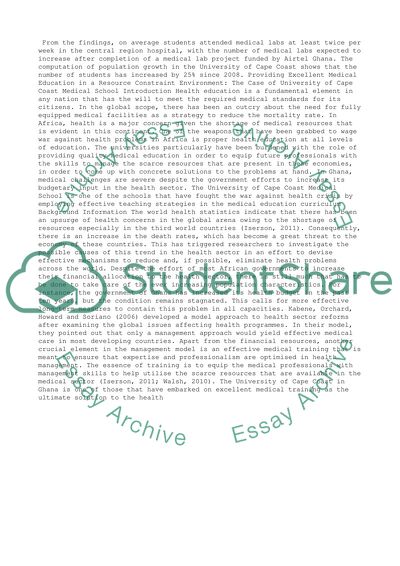Cite this document
(“Providing excellent medical education in a resource constraint Research Paper”, n.d.)
Providing excellent medical education in a resource constraint Research Paper. Retrieved from https://studentshare.org/management/1484701-providing-excellent-medical-education-in-a
Providing excellent medical education in a resource constraint Research Paper. Retrieved from https://studentshare.org/management/1484701-providing-excellent-medical-education-in-a
(Providing Excellent Medical Education in a Resource Constraint Research Paper)
Providing Excellent Medical Education in a Resource Constraint Research Paper. https://studentshare.org/management/1484701-providing-excellent-medical-education-in-a.
Providing Excellent Medical Education in a Resource Constraint Research Paper. https://studentshare.org/management/1484701-providing-excellent-medical-education-in-a.
“Providing Excellent Medical Education in a Resource Constraint Research Paper”, n.d. https://studentshare.org/management/1484701-providing-excellent-medical-education-in-a.


